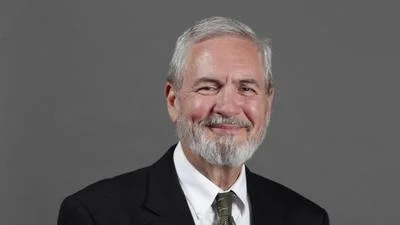Rep. Margo McDermed (R-Mokena) during the May 29 House floor debate on SB 2332
Rep. Margo McDermed (R-Mokena) during the May 29 House floor debate on SB 2332
If Gov. Bruce Rauner signs off on SB 2332, the minimum age to purchasing tobacco in Illinois will rise from 18 to 21 years old.
After succeeding in the Senate under the sponsorship of state Sen. Julie Morrison (D-Deerfield) on April 25, the bill almost passed the House with sponsor Rep. Camille Lilly (D-Chicago) during the May 29 floor debate. However, it did pass the next day, leaving the final decision to raise the minimum age to buy tobacco up to the governor.
After Lilly introduced the bill, noting that smoking kills more people than all other preventable deaths and costs $5.4 billion in healthcare-related costs in Illinois each year, she said 26 municipalities in the state adopted “Tobacco 21.”
During the debate, Rep. Peter Breen (R-Lombard) brought up a clause in the bill that eliminates the penalties for minors who possess tobacco in any form.
“I have two communities that strongly support this and have recently raised the age of sale,” Breen said of the cities of Wheaton and Glen Ellyn. “And I am very supportive of those efforts and think they made the correct decisions for their communities.”
But they did not make those decisions knowing that Springfield would then undermine current tobacco enforcement for minors, according to Breen.
“I don’t think anyone in this General Assembly wants 14-year-olds [to start smoking] now because the prohibition on the possession of the products would be wiped off the books with this particular initiative,” he added.
There are many other opponents to the bill, according to Rep. Keith Wheeler (R-Oswego), who wanted to know if Lilly had addressed any of the objections.
“Not one of the opponents have come to me and asked me any questions related to Tobacco 21,” Lilly said.
Assuming the opposition is due to Illinois bordering many other states that do not have the same legislation, Wheeler asked the sponsor if any of them carry the same law. Lilly named five states, but none of them border Illinois.
“The concern I have is that we are doing this in a vacuum like we do a lot of things in our chamber here,” Wheeler said, adding that if it were a national movement, or even regional initiative, he may very well be on board.
After Wheeler asked for a vote verification, Rep. Jeanne Ives (R-Wheaton) asked Lilly how she felt about legalizing marijuana.
“That’s another product that is smoked,” Ives said.
Lilly refused to answer the question because it was not the issue at hand. Ives asked once again, but Lilly still refused to answer.
“It is still a product that is smoked," Ives said. "So if you legalize marijuana, it would be in the same realm. It still creates the same issues by inhaling a harmful substance into your lungs.”
After noting the hypocrisy of passing one law over another, Ives pointed out how the bill would create sales over state lines and an underground market for tobacco products—not to mention the problems with eliminating possession penalties for minors.
“Think about what you can do at the age of 18, from military service, paying taxes, marrying, signing contracts, having property rights and medical treatment,” Ives said.
Though her GOP peers were against the bill, Rep. Margo McDermed (R-Mokena) felt differently, even dedicating her affirmative vote to her mother, who died of at age 55 due to being a lifelong smoker.
“My biggest regret is that she never got to meet my children or [see] me being able to have an adult relationship with her,” McDermed said. “My mom tried to quit many, many times and she never could.”
In a 56-54 vote, SB 2332 failed to pass on May 29, prompting Lilly to withdraw the bill for postponed consideration. However, it passed 61-49 the following day and moved to the governor’s desk.






 Alerts Sign-up
Alerts Sign-up